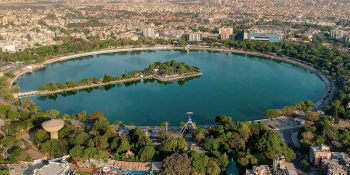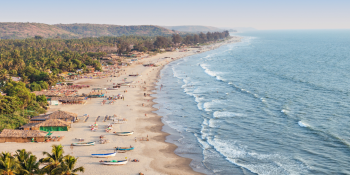The Arctic is one of the most pristine and fragile environments on Earth, home to unique wildlife, ancient ice formations, and ecosystems that have evolved over millennia. However, increasing human interest in Arctic exploration, driven by climate change and advancements in travel technology, poses a significant threat to its delicate balance. As a responsible travel company, Toliday Trip is committed to promoting sustainable tourism practices that allow people to explore the Arctic without causing harm to the ecosystem.
Understanding the Arctic’s Fragility
The Arctic is home to diverse species, including polar bears, walruses, seals, and various seabirds, all of which depend on the region’s cold temperatures and ice-covered seas for survival. However, warming temperatures are rapidly shrinking the ice cap, affecting wildlife and the overall ecosystem. As tourism increases, it is essential to recognize the impact that human activity can have on these delicate environments. Shipping routes, waste disposal, and human interference with wildlife can disrupt the balance of life in the Arctic.
Eco-Friendly Travel Practices
At Toliday Trip, we prioritize eco-friendly travel practices when organizing Arctic expeditions. We partner with companies that adhere to strict environmental regulations, ensuring minimal disruption to the ecosystem. Our tours are carefully planned to avoid sensitive areas and fragile habitats, ensuring that wildlife is not disturbed. Small group tours with limited numbers of participants help minimize the environmental footprint of each journey, creating a more intimate and respectful travel experience.
Sustainable Transportation Options
Transporting travelers to and within the Arctic requires careful planning to reduce emissions and environmental impact. We emphasize the use of low-carbon, eco-friendly modes of transport, such as hybrid ships or electric vehicles, wherever possible. The use of smaller ships for Arctic cruises is encouraged, as they can navigate through narrow passages with less impact on the marine environment. Additionally, we promote the use of charter flights that adhere to stringent emissions standards and offset carbon footprints through carbon credits.
Wildlife Conservation Efforts
Wildlife conservation is at the heart of responsible Arctic exploration. Our trips are designed with wildlife conservation in mind. We work closely with local wildlife protection agencies to ensure that our tours respect wildlife corridors and do not interfere with animal migration or breeding cycles. Our experienced guides educate travelers on the importance of keeping a safe distance from animals and avoiding behaviors that could cause distress. We also encourage responsible photography, where no animal is disturbed for the sake of a perfect shot.
Engaging with Local Communities
Another key aspect of responsible Arctic exploration is engaging with local indigenous communities who have lived in harmony with the environment for centuries. We respect their culture, traditions, and knowledge, involving them in the planning and execution of tours whenever possible. By supporting local economies through responsible tourism, we ensure that these communities benefit from sustainable travel, allowing them to continue protecting their land and way of life.
Exploring the Arctic is a rare and remarkable experience, but it comes with the responsibility to protect and preserve this fragile ecosystem. At Toliday Trip, we are committed to offering Arctic expeditions that promote sustainability, respect for local cultures, and environmental conservation. By taking steps to reduce our impact, we can ensure that future generations will also have the opportunity to experience the wonders of the Arctic without causing harm to its delicate ecosystem.









